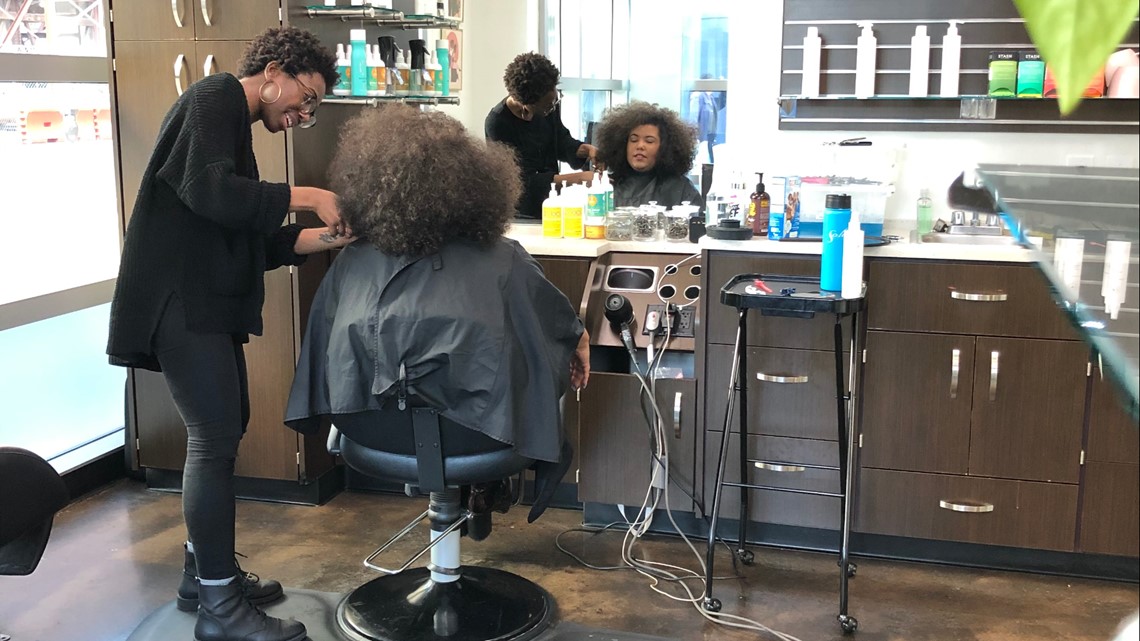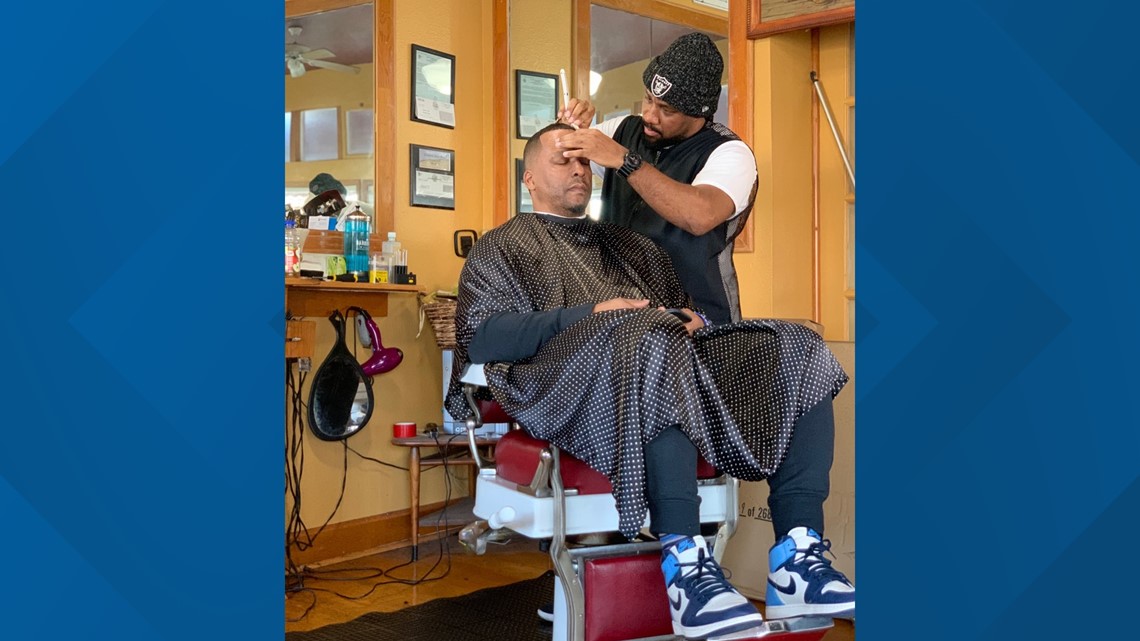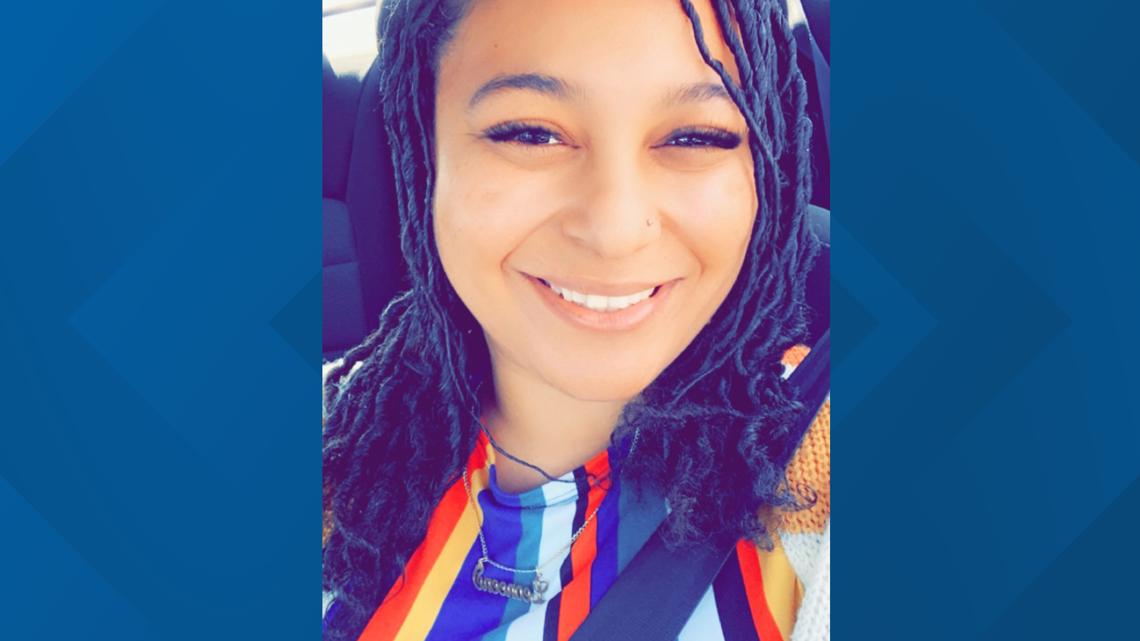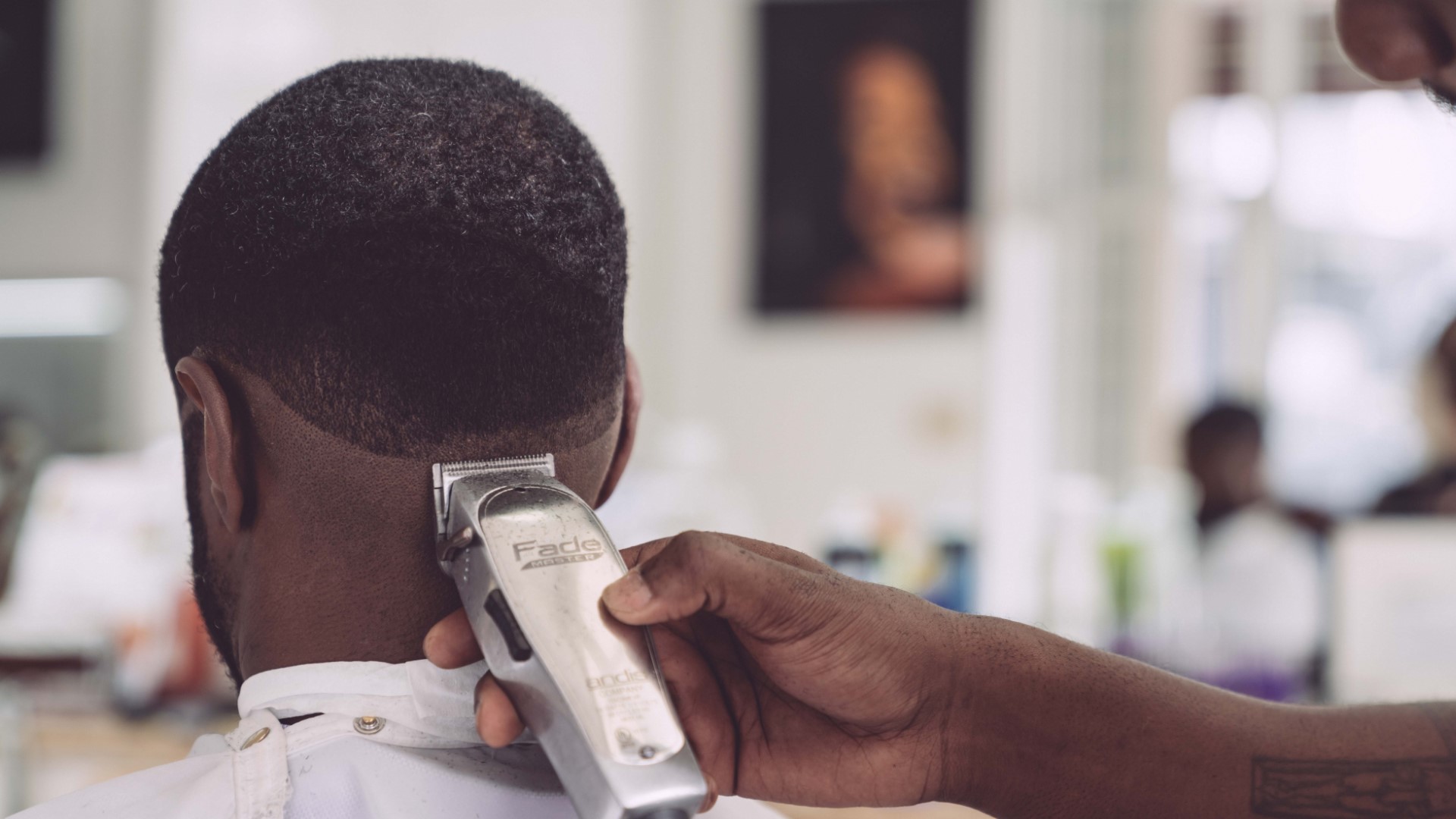SACRAMENTO, Calif —
Camille Janae moved her beauty shop, Mahogany & Rose, from midtown to downtown Sacramento in February. But a month later she had to close her new shop after Gov. Gavin Newsom issued a stay-at-home order to slow the spread of the coronavirus.
"Initially, I was in disbelief — denial," Janae said. "I couldn't really wrap my mind around closing against my will."
Janae's salon, like thousands of other salons and barbershops in California, are considered non-essential services under Newsom's order. That means, instead of staying open to serve clients, they have to shutter their doors and hope they survive weeks — possibly months — of being closed.


The closures are especially hard for salons and barbershops catering to the unique hair care needs of Black people.
"My position is kind of a key pillar in the African-American community," Janae said. "Specializing in textured hair, I empower my clients to wear their hair in their natural state. That has not always been popular or openly accepted."
Prentice White, owner of Chicago's Barbershop on Broadway, said his Oak Park shop serves as a sanctuary for his clients.
"Everyone comes and expresses their feelings, thoughts, issues and whatever they're dealing with in life," White said. "And they want to look nice."
White said he closed his barbershop the day before Gov. Newsom's stay-at-home order.
"I shut down for the safety of my staff, clients and my family," he said. "At the end of the day, money's not everything. My family, staff and clients are the most important to me."


While money may not be his main focus right now, he knows he can't withstand the loss of income forever, so he's working to find other ways to generate income.
"Right now, I'm asking God for direction while I'm in the situation," White said. "What can me and my family create in this time of need that everyone can utilize and create income for us?"
Janae caught a break from her new building's owners who said they won't be charging her rent as long as the stay-at-home order is in place. Still, without doing hair, she has to rely on other ways to make money.
"I'm focused on offering virtual consultations and shipping out hair care products," Janae said. "In the future, depending on how long this may last, I plan to offer more in-depth online classes regarding at home care for clients. Even still, those online courses won’t cover the lost income from providing services in my salon.”
Both Janae and White are looking into unemployment insurance as well as small business loans and grants.
As tempting as it may be to take clients' requests for house calls, it's not worth the risk.
"I still don’t want to put myself or anyone else at risk cause you don't know who has the virus," said part-time barber Augustine McCabe of Luxury Fades Barbershop in Citrus Heights.
McCabe said he called his clients to let them know he wouldn't be able to cut their hair until further notice.
"Majority of them asked if I'd do a house call," McCabe said. "Some of them were aware of the situation, understood the seriousness of the virus [COVID-19] and were already taking precautions. They said, 'Well, we'll just come back whenever you guys open back up.'"
For many Black people, getting their hair done isn't just about looking good, McCabe said.
"People look at you and judge you based off your hairstyle," McCabe said. "Right now, with the virus going on and people unable to get their haircut... you're going to have an afro. It's not a bad thing to have an afro; some love their hair like that. But as a Black person, they classify you a certain way based on a hairstyle."
For years, Leoneene Henry worried what others would think of her if she loc’d her hair. The wife and mother of three finally decided to go for it, and had her first appointment with a loctician in February to get locs.
"My next appointment was supposed to be Monday, March 23," Henry said. "It was canceled due to the stay-at-home order. I have the slightest idea what to do with my hair. I don't know if I should comb them out and restart later or just leave them alone.”


For now Henry is relying on YouTube tutorials to teach her how to maintain her locs until she can get back to a professional.
"I feel like our barbershops and beauty shops are essential in a way. Our hair is special and it needs special attention," Henry said. "Our barbers, hair stylists and locticians specialize in not just doing our hair, but in loving our hair into a healthy state."
FOR NEWS IN YOUR COMMUNITY, DOWNLOAD THE ABC10 APP:
►Stay In the Know! Sign up now for ABC10's Daily Blend Newsletter



